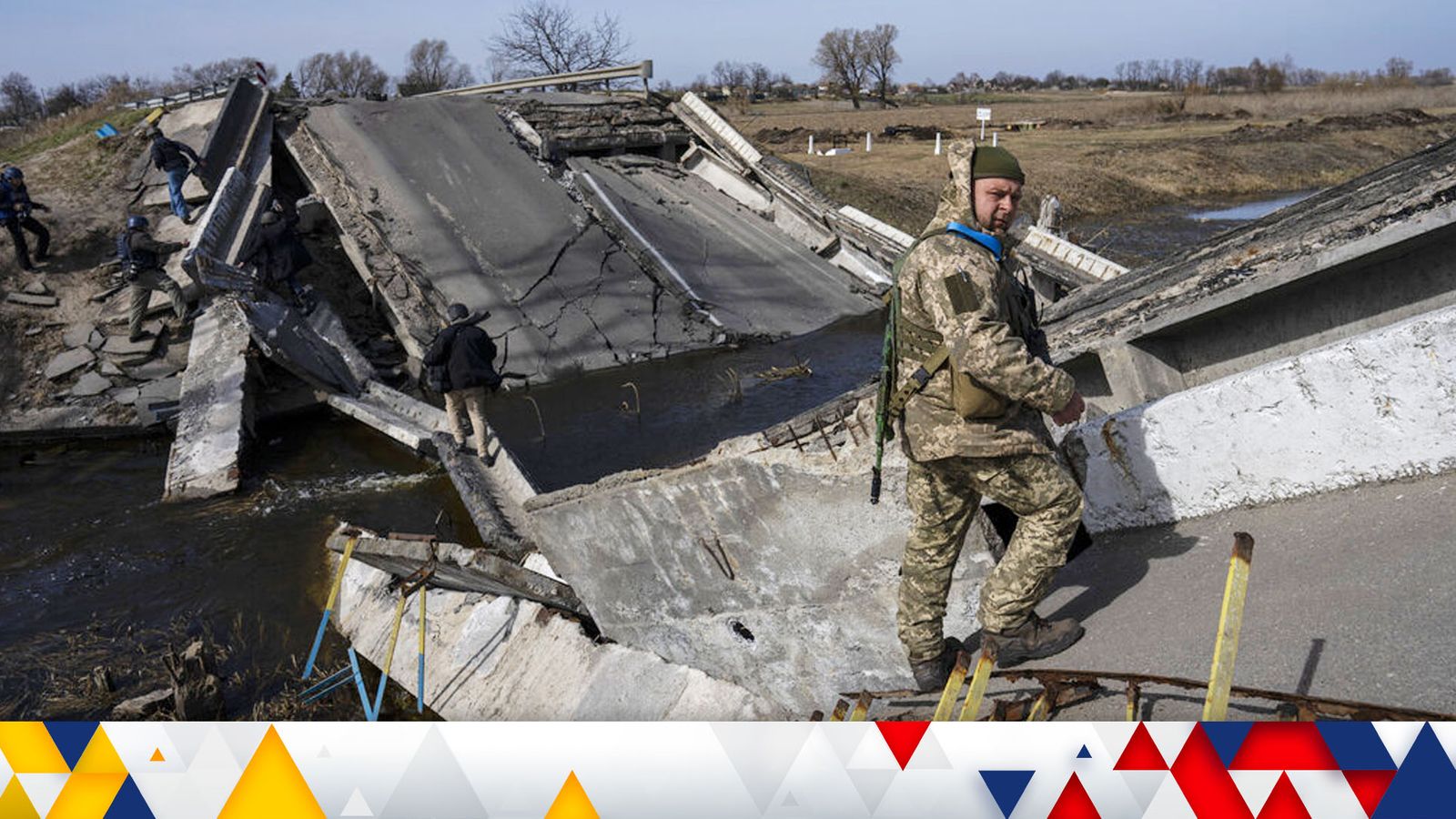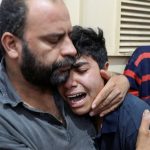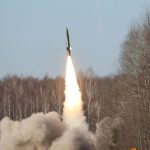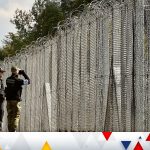Russia’s claims that it will drastically cut its military operations near Kyiv have raised eyebrows and led to questions over whether the move is a genuine bid for peace or just a smokescreen so the Kremlin can marshal its forces.
Moscow has pledged to “fundamentally cut back” its operations around the Ukrainian capital to “increase mutual trust” in peace talks between Russia and Ukraine, but Western officials have suggested it is more about buying time.
Can Russia’s pledge be trusted?
“The most striking thing about this is the way that even after everything we have seen about how untrustworthy and unreliable Russian Ministry of Defence statements are people are still taking them at face value,” Keir Giles, a Russia expert at the Chatham House think tank, said.
Mikhail Kasyanov, who was the prime minister of Russia under President Vladimir Putin from 2000 to 2004, spoke to Sky News about the situation in Ukraine and what peace talks could mean.
Please use Chrome browser for a more accessible video player
“I do not think we have indication that Mr Putin is ready for any concessions,” he said.
“He wants also to have a staged negotiations with Ukraine just to demonstrate to the whole world he wants peace but… I think it’s simply just some kind of camouflage.”
Ukraine war: Zelenskyy says Kremlin’s offer to pull back ‘doesn’t drown out Russian shells’
Ukrainian soldier who told Russian warship to ‘go f*** yourself’ from Snake Island gets bravery award
Ukraine war: Emerging after a month underground – but residents of ‘liberated’ Irpin fear more Russian attacks
Is Russian move a ‘recognition of reality’ on the ground?
Michael Clarke, a defence analyst, said Moscow’s failure to overrun Ukraine had come into play.
“It’s a rationalisation of the military situation they find themselves in,” he said.
“They realise, I am sure, that they have got to concentrate their forces. They are far too widely distributed.
“They have got to concentrate somewhere which is why our attention now goes towards the southeast of the country.”
Mr Giles described the move as a “recognition of reality” by Russia, realisation that it has “failed” and scaled back its war aims to focus on the east of the country.
Yet he also questioned whether Ukraine can sustain its military operations, citing Russia’s “good track record” of starting wars “disastrously” but then winning through sheer force of manpower.
Alexander Stubb, the former Finnish prime minister, who helped to broker a ceasefire with Russia and Georgia in 2008, said that the announcement by Russia could just be a signal that the Kremlin is focusing its troops in the east of the country.
Is the Kremlin just buying time?
Speaking to the Reuters news agency, a Western official said the announcement “seems to be more of a tactical exercise” to buy time for troops to regroup.
At a news conference at the White House, US President Joe Biden put it simply: “We’ll see if they follow through.”
That assessment was echoed by US Secretary of State Antony Blinken, who said he was “not seeing signs of real seriousness” from Russia when it came to ending the war.
“Whether it’s simply trying to regroup, given the heavy losses that it suffered, I don’t know,” he said.
Meanwhile, one of the leaders of the Moscow-backed separatist rebellion in eastern Ukraine has called Russia’s invasion “a mistake”.
“All this could have been resolved earlier, mainly through diplomatic means and perhaps an insignificant use of force,” Alexei Alexandrov told Reuters.
“But that was not done, and that is a mistake on all sides.”
What is happening around Kyiv?
One of the most discussed developments of the first weeks of the war was a huge convoy of Russian armoured vehicles headed for Kyiv, with the expectation that Kremlin troops would seek to encircle the capital.
Russian operations around the city have since stalled, according to Mr Giles.
“All Russia is proposing now is nothing to do with increasing trust,” he said.
“Those operations [around Kyiv] have been halted and in some cases reversed by the Ukrainian armed forces.”
Mr Stubb argued: “To be honest, it seems that they have totally and utterly failed in their attempt to take over Kyiv.
“We’re now the fifth week – soon sixth week – of this war, and they haven’t been able to take it over.”
Mr Clarke agreed that Russia “clearly can’t now encircle Kyiv” in the way many expected it to be able to at the beginning of the war.






















